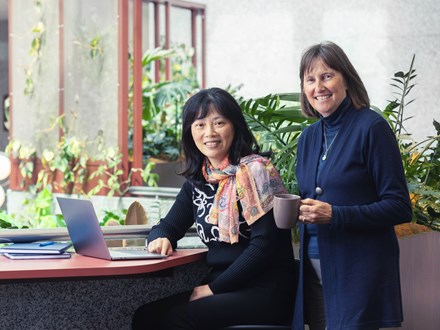Over the past 21 years the Sustainable Business Network has been working with Kiwi businesses that want to do things more sustainably. Some want to be leaders, others see it as the right thing to do. Either way they see the benefits that include reducing environmental harm, saving money and gaining a competitive advantage. Learn more about the benefits.
With severe weather events increasing, waterways clogging with pollution and biodiversity taking a hammering, it’s critical we all take urgent action.
However, in the face of rising costs, supply chain issues and deadline stresses, sustainability is often a low priority. The good news is that many of the issues that are keeping you awake at night can be lessened or resolved by making sustainability central to the way you do business.
Sounds good, right? Here’s a great place to start.
Docket: Review the sustainability of your business
Docket is a free online toolbox that makes it easy to get a handle on how you’re going when it comes to reducing carbon emissions and waste, regenerating nature, looking after staff and eliminating modern slavery. You can also review your supply chain. See where you’re doing well and learn how to share those success stories with your customers and suppliers. You’ll also identify where you can improve and get free tools and resources to help. Some of those are listed below.
Climate Action Toolbox: Measure, reduce and track carbon emissions
The free Climate Action Toolbox is designed to help small to medium-sized businesses in Aotearoa New Zealand. Almost 50,000 people have used it since it launched in 2021. Do a quick assessment or a full calculation of your emissions. Either way you’ll get an action plan along with step-by-step guides. The Toolbox will also set an emissions reduction target for you so you can track your progress. Find out what businesses say about using the Toolbox.
Circular Economy Directory: Find organisations that can help you
The Circular Economy Directory makes it easy to find organisations that can help you design out waste, reduce carbon, keep materials in use and regenerate nature. The Directory has more than 300 solutions and is free to use. Browse by product, category or industry. And, if you have a tricky sustainability issue and can’t find the solution you need, let us know by uploading a brief outline of the problem on Challenge Hub. We’ll put it out to our networks to see who can help.
Nature Pathways: Guides to regenerating nature
There is increasing interest in projects that regenerate nature. Like most areas of sustainability, many people don’t know where to start. That’s why we created our Nature Pathways for businesses, farmers, growers or rural landowners. Learn about the value of growing native plants, the importance of predator control and get guides on restoring waterways, volunteering time or skills and investing in regeneration projects.
These are our main tools and, in case you missed it, they’re all provided to you for free. We’re able to do that thanks to the generous support of our partners. We also provide a range of resources you can download for free. They give you a quick overview of what you can do and how to start, ranging from wellness in the workplace and flexi-working to saving energy and reducing office waste.
Tools and resources are great but sometimes you need the help and support of real people. That’s where our Advisory service comes in. We can help craft and improve your sustainability strategy, run workshops and provide research and analysis. We offer bespoke services plus our core packages cater for different sized organisations, budgets and levels of support. Download our brochure to learn more and read the feedback from businesses we’ve worked with.
Want more? We’ve produced diagnostic reports for the three main areas we work in. They provide insights into what we’re doing and why it’s important. Download them for free.
Regenerating Nature in Aotearoa New Zealand - The Transformative Role of Business
Climate Action 20/25 background report
Going Full Circle - Six focus areas for shifting Aotearoa New Zealand to a low carbon circular economy

